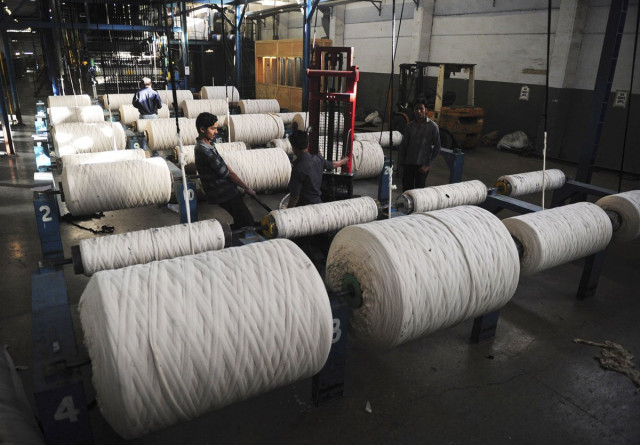Textile-makers: Industry relieved as govt decides to halt outages
Power supply will be ensured until closure of canals at December-end, could come at the cost of other consumers

Textile producers heaved a sigh of relief, at least for now, as the government announced on Thursday that the industry would not face crippling power and gas disruptions, which would help them boost exports and prop up the country’s economy.
However, this will apparently come at the cost of other consumers – commercial units, agricultural sector and domestic users, who will continue to experience outages.
In a statement, the Ministry of Water and Power declared that the decision to provide uninterrupted power supply to the industry had been taken in the wake of increased industrial activity, especially after the grant of Generalised Scheme of Preferences (GSP) Plus status by the European Union. As a result, it said, exports of the country had risen considerably.
Separately, the finance ministry in a statement said the government had immediately suspended the gas load-shedding plan for textile units in Punjab and would restore supply to units to whom it had been stopped.

“The decision was taken by Finance Minister Ishaq Dar with the approval of the prime minister. A final decision on gas outages will be taken after the return of relevant ministers from visits abroad,” the ministry said.
The government sprang into action after the textile industry started complaining about the loss of $1 billion in the past six months and the threat of losing another $2 billion in coming months if the industry was completely shut down due to energy shortages.
Contrary to the water and power ministry’s claim of a significant increase in exports, figures released by the Pakistan Bureau of Statistics showed a slight fall in textile shipments in the first quarter (July-September) of the current fiscal year. This came despite the exporters getting duty-free access to European markets under the GSP Plus scheme, which came into effect from January this year.
Exports of the textile group dropped 4% to $3.4 billion in the quarter. The decline was across the board with a maximum decrease of 63% in sales of cotton carded. Raw cotton exports contracted 24%, cotton yarn 21.8% and cotton cloth 13.5%.
Though the industry has been assured of uninterrupted electricity supply, domestic and other consumers are facing energy shortage because of a drop in hydroelectric power generation.
In the statement, the water and power ministry said on the directive of Prime Minister Nawaz Sharif it had asked all electricity distribution companies to exempt the industry from power outages because of gas shortage in the country.
“Distribution companies have been directed to immediately implement the plan, which will remain in force until the closure of canals (for annual cleaning) at the end of December when hydroelectric power generation will drop to very low levels.”
Distribution companies have also been told to implement a load management plan for domestic consumers in winter, which will keep outages at the minimum. They will implement the plan according to their schedule.
The ministry expressed the hope that the decision would have far-reaching impact on overall economic development in the country and creation of job opportunities on the back of enhanced industrial activity.
The general public, labour unions, trade and industrial representative bodies have widely praised the move. The textile industry stresses that after the grant of GSP Plus status, it has made a plan to double exports to $26 billion in five years compared to existing $13.7 billion.
Published in The Express Tribune, November 14th, 2014.
Like Business on Facebook, follow @TribuneBiz on Twitter to stay informed and join in the conversation.



















COMMENTS
Comments are moderated and generally will be posted if they are on-topic and not abusive.
For more information, please see our Comments FAQ